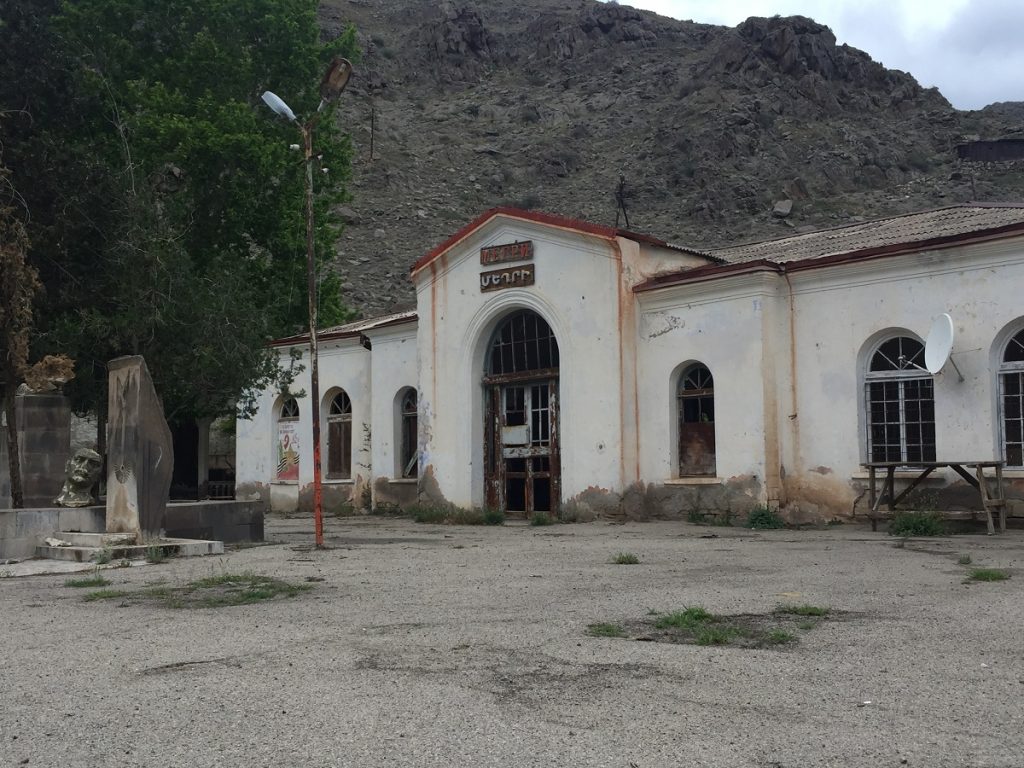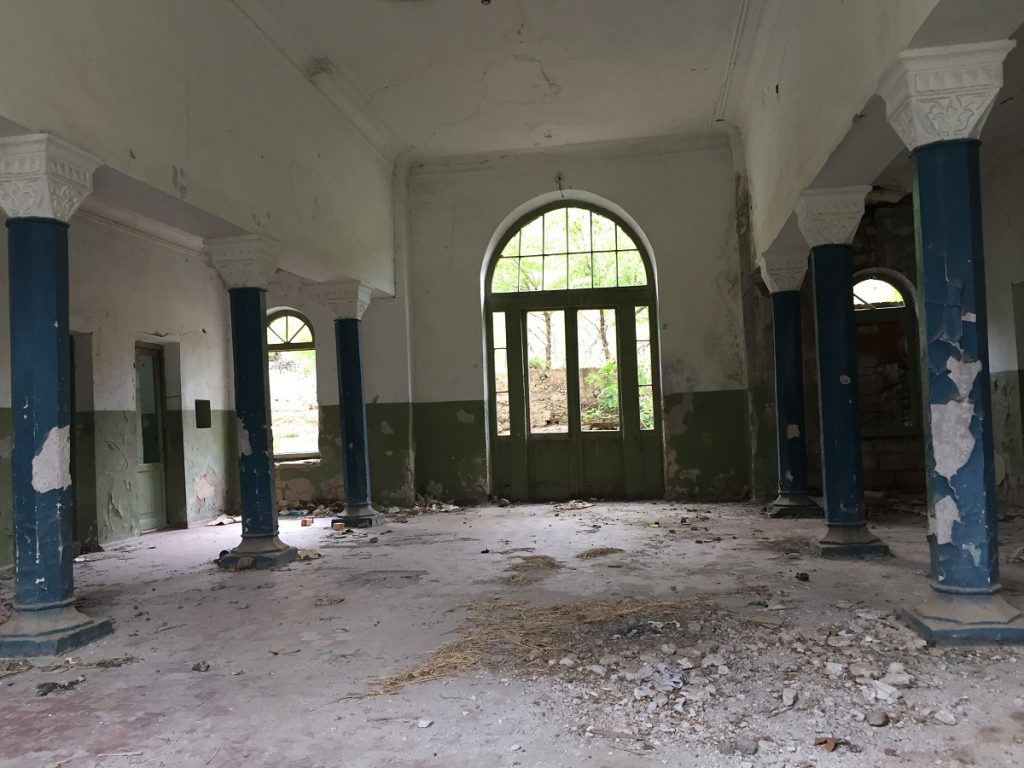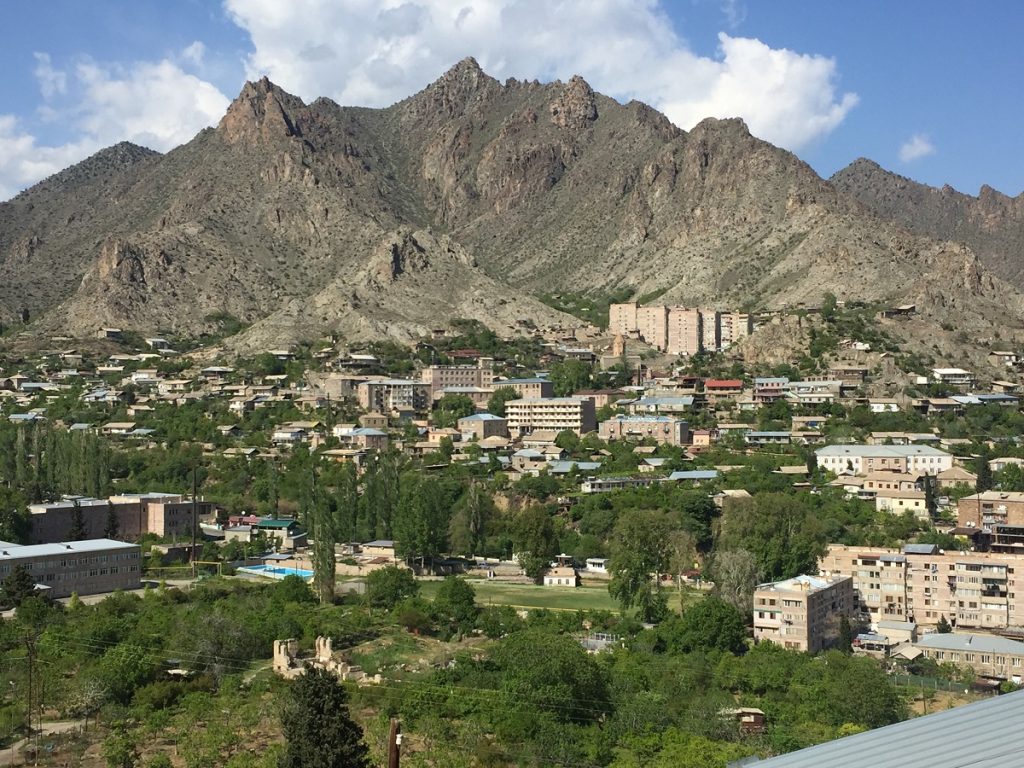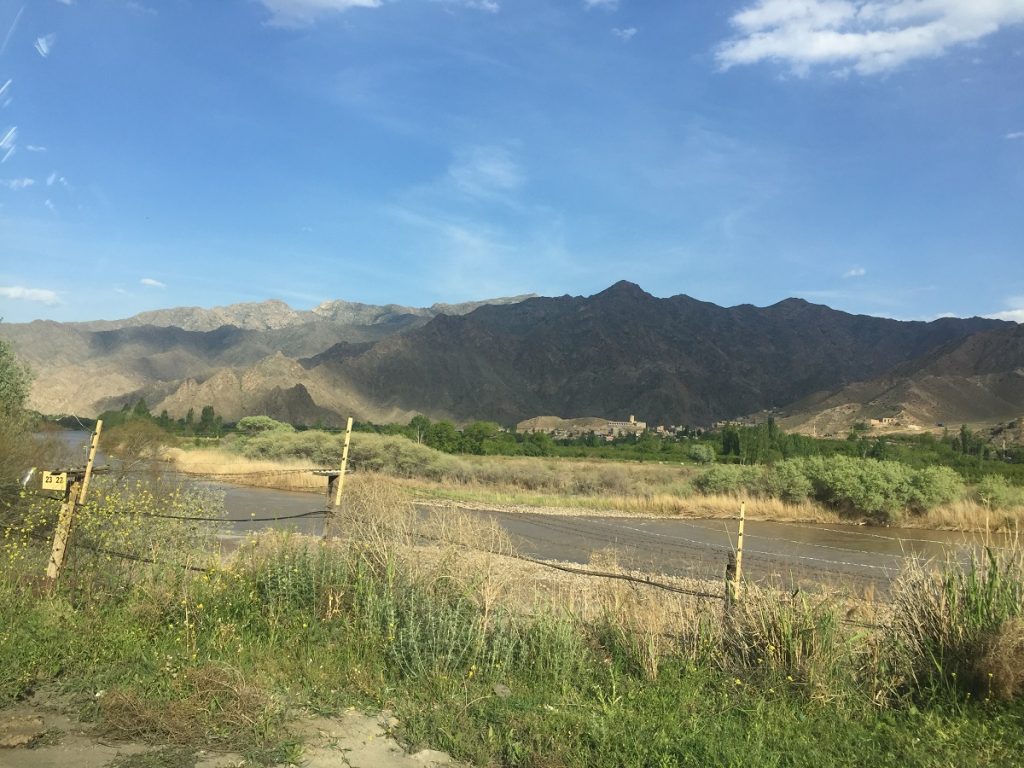The road to Nakhichevan: is Armenia surrendering its territories to Azerbaijan or emerging from blockade?
Armenia is discussing the transit road to be built linking Nakhichevan with Azerbaijan, a provision of the recently signed Karabakh truce.
Most likely, the road will pass through the Armenian city of Meghri, located in the south of Armenia, almost 400 km from Yerevan and next to Iran.
In the west, Meghri borders on the exclave of Azerbaijan – the Nakhichevan Autonomous Republic.
The trilateral truce also provides for the unblocking of all economic and transport links in the region.
But in Armenia this has not inspired enthusiasm. It is believed that in addition to the voluntary surrender of the territories of Nagorno-Karabakh to Azerbaijan, this document prepares the ground for the loss of Meghri by Armenia.
What do the residents of Meghri think about the construction of new transport lines, what do they fear and what do they hope for?
- Armenian authorities insist on ‘de-occupation of Nagorno-Karabakh’ and the ‘right of its inhabitants to self-determination’
- Op-Ed: what Turkish-Azerbaijani military exercises in Nakhchivan mean for Armenia
- The fight for Karabakh is over, but the battle with PTSD is just beginning
The situation in Meghri
The deputy head of the Meghri administration Armen Samvelyan says that it is the uncertainty that causes the residents’ concern more, since it is not clear what exactly is being discussed:
“At the moment, we all know only a little of what is included in the document and what we read in it. The Meghri community is on the territory of Armenia, and the residents of Meghri themselves must make decisions about it. There is an initiative group of the residents of Meghri, which expresses dissatisfaction with the upcoming construction of the road, but at the moment they do not take any action.”
A railway may be under consideration. On November 18, the press service of the Russian government reported that Russian Prime Minister Mikhail Mishustin and Azerbaijani Prime Minister Ali Asadov had a telephone conversation, during which time they discussed “prospects for the development of railway infrastructure, taking into account decisions on the normalization of transport links in the South Caucasus.”

Moreover, the South Caucasian Railway Company, which is in charge of managing the railways in Armenia, is a subsidiary of Russian Railways.
According to Armen Samvelyan, the employees of SCR company have already visited Meghri, carried out some research, but nothing has been definite yet.

“Not a single resident of Meghri will stay here”
In Soviet times, the Yerevan-Nakhichevan-Baku railway, as well as Yerevan-Kapan, passed through Meghri along the banks of the Araks River. Years ago, this road was dismantled. Moreover, the land road from Meghri to Yerevan also passed through Nakhichevan.
In 1980, the Meghri-Kajaran road was put into operation, which connected Meghri with Yerevan through the Syunik region of Armenia.
Meghri resident Sirun Sargsyan recalls an incident that happened in the late 1980s with passengers of the Yerevan-Kapan train:
“Back in the Soviet years, when there were all security guarantees, Armenian passengers were kidnapped in the city of Ordubad. This was after the Armenian pogroms in Sumgait. The passengers were practically captured and released in groups after negotiations, some of them remained in Ordubad for months. After that, the railway ceased to function. I want to say that security guarantees are not enough.”
Sirun is confident that the construction of the road will put Armenia in danger of losing Meghri:
“Not a single resident of Meghri will stay here. This means the eviction of Armenians from Meghri. I have no idea what economic benefits are in question. I do not believe in any promises and guarantees. I ask why Meghri was included in the territories that are inferior following the results of the war in Karabakh? This is an Armenian settlement.
Why is Aliyev’s plan being implemented? This is how the pan-Turkic programme of Turanism is being implemented. They severed the territories of Karabakh, now they have set their sites on Armenia.”
Since this opinion is shared by many in Armenia, on November 13, Prime Minister Nikol Pashinyan officially announced on Public Television that rumors about the surrender of Meghri to Azerbaijan were absurd:
“The matter is only about unblocking transport routes in the region, including from Azerbaijan to Nakhichevan. But this means that the transport routes from Yerevan to Syunik through Nakhichevan, including the railway communication between Armenia and the Islamic Republic of Iran, should also be unblocked, which may be of significant importance for the future economic development of our country.”

“The greatest achievement is peace”
Historian Mariam Tsatryan, a resident of Meghri, says that people here want peace and stability:
“We got along well with Azerbaijanis. It will be good if our diplomacy succeeds in obtaining guarantees that we, as in the past, could use the railway – through Nakhichevan to Yerevan. Now it is difficult to imagine it practically and in moral and psychological terms, and it is not time yet. I’m talking about the future.
I recently listened to one of Putin’s speeches, where he talks about the restoration of contacts at the household level. For me, the everyday level is trade. For example, our people calmly communicate and trade with the inhabitants of the north of Iran, and most of these people are Azerbaijanis. It’s not about good or bad. The greatest achievement for people is peace and normal coexistence.”
Mariam considers the presence of the Russian military in the region and Iran’s neighborhood as a deterrent for Turkey and Azerbaijan:
“As I understand it, a worthy compromise is one thing, but defeat in the war and signing an agreement on its results is another. In the second case, you accept what is imposed on you. It hurts to admit it, but it’s true.
I hope that at least in the context of unlocking, regarding Meghri, we can win something. And this southern point, where geopolitical interests intersect, will breathe and become a zone of economic activity. I may be an optimist, but that’s what I think.”
“A lot can change”
Since 2016, under the enlargement program, Meghri has become something of a center for the wider community, with more than a dozen villages have joined it. The most distant of them is Nrnadzor, where, according to the maps, Armenia ends.
The head of the village administration Aleksan Boyadzhyan says that in the past the railway passed through Nrnadzor, but now it is destroyed:
“There are families who have lost their children in this war, what will be their reaction if, for example, they see a railway passing through the village? In any case, the details are not yet known and we can only speculate. But in five years a lot can change, one of the parties can refuse to abide by the agreements.”
He believes that it takes time – years for people on both sides to be able to survive what happened, to dull pain and suffering.
“Next to the village is the Zangelan region, which recently [as a result of the war] passed to Azerbaijan, we are 10 km away from them. Not that this does not cause concern, but also not that people are afraid and are going to leave the village. There is concern, because the authorities do not yet have exact answers to many questions,” said the head of Nrnadzor.
“No Meghri – No Armenia”
Siran Sargsyan from Meghri says that this is not the first time that the city has been a subject of bargaining in negotiations; the previous Armenian authorities have also periodically played this card. But there were also those who, in her opinion, correctly assessed the situation:
“Armenian Prime Minister Vazgen Sargsyan [1999] said that Meghri is not just a geographic territory, Meghri is the gate to our house, and to give Meghri means to close them, there is no Meghri – there is no Armenia. As a resident of the city, I am against this point in the document. “



















